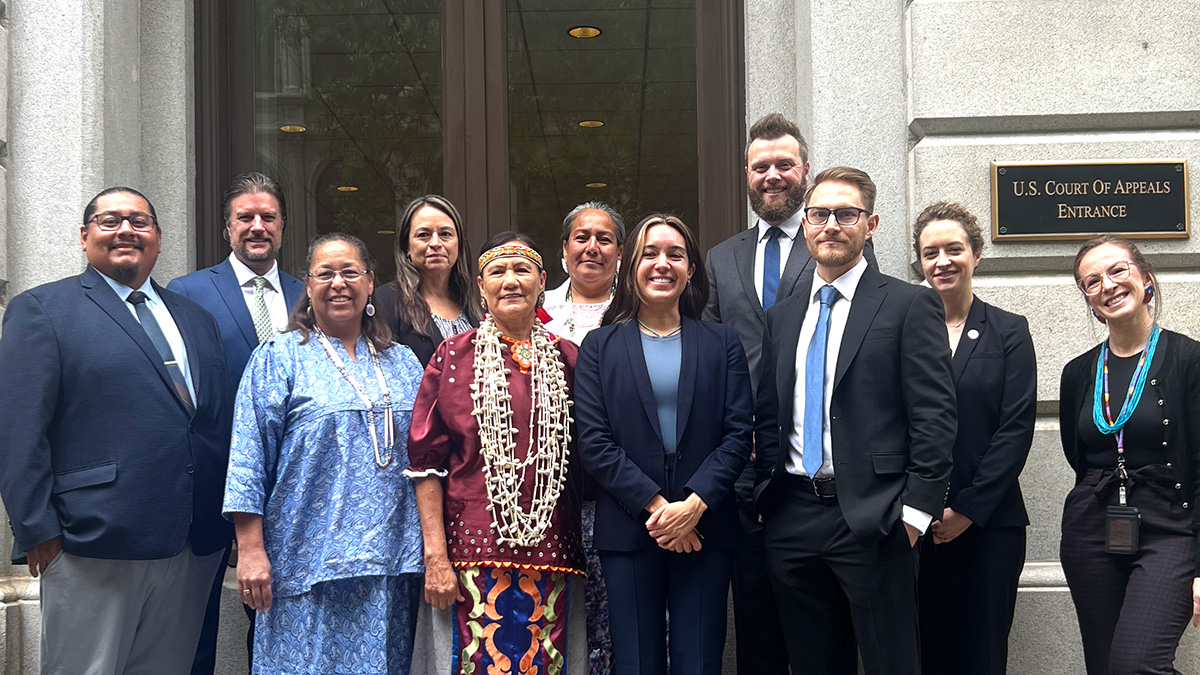The following information may trigger individuals impacted by boarding school and related intergenerational trauma. To find support and other resources, visit the National Native American Boarding School Healing Coalition at: https://boardingschoolhealing.org/self-care-resources/
On September 10, 2025, the Winnebago Tribe of Nebraska appeared for oral argument before the United States Court of Appeals for the Fourth Circuit in Winnebago Tribe of Nebraska v. United States Department of Army The argument was part of Winnebago’s appeal of the United States District Court for the Eastern District of Virginia’s August 2024 dismissal of the Tribe’s action to enforce the Native American Graves Protection and Repatriation Act (NAGPRA) and bring home the remains of two Winnebago children, Samuel Gilbert and Edward Hensley, from the Carlisle Barracks Post Cemetery. In dismissing Winnebago’s action, the District Court held that NAGPRA is inapplicable to the remains of children who died because of their time at Carlisle and who were buried at the Carlisle Cemetery. Winnebago argued that NAGPRA’s purpose and plain language requires the repatriation of Samuel and Edward from the Carlisle Cemetery to Winnebago.
NARF Staff Attorney Beth Margaret Wright explained to the appeals court, “The District Court should be reversed. NAGPRA’s purpose is to provide Indian Tribes with a statutory right to bring home the remains of their own citizens from places they do not belong. NAGPRA provides Indian Tribes additional rights to ensure repatriation is tailored to the unique needs of Indian Tribes.”
During the argument, counsel for Winnebago described how when the children died at Carlisle, the United States government buried the children’s remains without notice to or consent from their families or Winnebago. In 1927, the Army mass transferred the children’s remains from their original burial location to their current location at the Carlisle Cemetery. During that transfer, the Army excavated the children’s remains, haphazardly threw them into boxes, and reburied them at the current Carlisle Cemetery; again, without notice to or consent from the children’s families or Tribes. Wright explained that NAPGRA not only requires the return of Native American human remains to Indian Tribes but recognizes that because of federal agencies and museums’ improper possession or control of Native American human remains, this meant that Indian Tribes had been denied the dignity and respect of providing their relatives with proper burials according to Tribal customs. Winnebago seeks to finally bring the boys home and lay them to rest with Winnebago burial customs the boys should have been provided more than 125 years ago.

To learn more about Samuel Gilbert and Edward Hensley and Winnebago’s fight for their repatriation, visit the Winnebago v. U.S. Army case page. The Winnebago Tribe of Nebraska is represented by its General Counsel, Danelle Smith, at Big Fire Law & Policy Group LLP, NARF, and Cultural Heritage Partners, PLLC.
More blog posts

